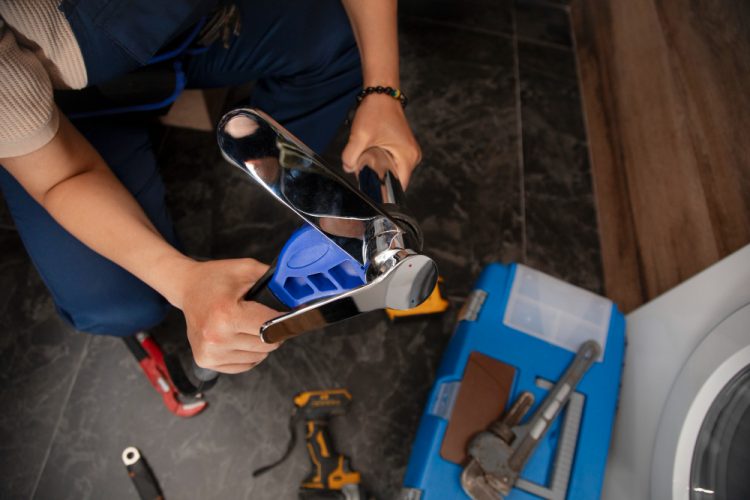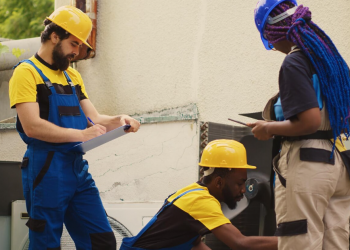If you live in Florida, especially in homes built before the mid-1990s, you may have polybutylene pipes in your plumbing system. While these pipes were once a popular choice for builders due to their affordability and ease of installation, they have since been linked to a range of plumbing issues that could result in major headaches down the road. If you’ve heard about polybutylene pipes but aren’t sure what the fuss is about, don’t worry. Let’s dive into why replacing polybutylene pipes Florida is a smart investment for your home.
What Are Polybutylene Pipes?
Polybutylene is a type of plastic resin that was used for plumbing pipes from the late 1970s to the mid-1990s. These pipes were widely used in homes because they were affordable and easy to install, as they could be easily cut and shaped into place. At first glance, polybutylene pipes seemed like a great solution for plumbing systems. Unfortunately, it didn’t take long for issues to arise, and homeowners across Florida (and the rest of the U.S.) started facing serious plumbing problems.
Why Polybutylene Pipes Are a Problem in Florida
If you have polybutylene pipes in your home, it’s essential to understand why they can be problematic, especially in Florida’s unique environment.
- Degradation Due to Chlorine: Polybutylene pipes are highly susceptible to degradation when exposed to chlorine in the water supply. Florida’s water treatment systems often use chlorine, which weakens polybutylene pipes over time. The pipes can become brittle and crack, leading to leaks and potential flooding.
- Temperature Fluctuations: Florida’s hot and humid climate can also accelerate the deterioration of polybutylene pipes. The constant exposure to high temperatures, coupled with the humidity, causes the pipes to expand and contract, which eventually leads to fractures and leaks.
- Increased Risk of Leaks and Water Damage: Polybutylene pipes have a higher tendency to leak compared to other materials like copper or CPVC. A small crack or leak in these pipes can quickly escalate into a major water damage issue in your home. With Florida’s high rainfall and the risk of hurricanes, a leaking pipe can cause extensive damage to your property.
- No Longer Approved for Use: Since the early 1990s, polybutylene pipes have been banned from use in new constructions. Insurance companies are often hesitant to cover homes with polybutylene pipes, and if you try to sell your home, you may face difficulties if potential buyers find out about the pipes.
The Benefits of Replacing Polybutylene Pipes in Florida
So, why should you invest in replacing your polybutylene pipes? The benefits are clear.
- Reduced Risk of Water Damage: The primary reason homeowners replace polybutylene pipes is to protect their homes from water damage. By upgrading to more reliable materials like copper, PEX, or CPVC, you can significantly reduce the risk of leaks and flooding in your home. Florida homeowners know all too well how expensive water damage can be, so it’s better to be proactive and avoid costly repairs.
- Increase Property Value: When you replace outdated polybutylene pipes, you’re not just fixing a plumbing problem – you’re also improving the value of your property. A home with updated plumbing systems is far more attractive to potential buyers, especially in a competitive market like Florida’s. Homes with polybutylene pipes are often viewed as “problem homes,” and prospective buyers may negotiate for a lower price. By replacing the pipes, you show that your home is well-maintained, making it easier to sell for a better price.
- Improved Water Quality and Pressure: Replacing polybutylene pipes improves water flow and quality. Polybutylene pipes can become clogged with mineral deposits and corroded over time, which affects the water pressure and the taste and smell of your water. Newer pipes provide cleaner water and better pressure, ensuring your plumbing system works efficiently.
- Peace of Mind: Knowing that your plumbing system is safe and up to modern standards brings peace of mind. You won’t have to worry about hidden leaks or unexpected plumbing issues cropping up, especially during Florida’s hurricane season. Replacing polybutylene pipes ensures that your home’s plumbing is reliable and durable for years to come.
What Are the Options for Replacing Polybutylene Pipes?
When it comes to replacing polybutylene pipes Florida, you have several options to consider. The best option depends on your budget, the layout of your home, and your long-term goals.
- Copper Pipes: Copper pipes are a popular choice because they’re durable, long-lasting, and resistant to corrosion. They’re great for areas with high water pressure like Florida, but they can be more expensive than some other options.
- PEX Pipes: PEX (cross-linked polyethylene) pipes are a newer option that’s increasingly popular in Florida homes. They are flexible, easier to install than copper, and more affordable. PEX pipes are also resistant to corrosion, freezing, and high water pressure, making them a great choice for Florida’s climate.
- CPVC Pipes: CPVC (chlorinated polyvinyl chloride) pipes are another alternative to polybutylene pipes. They are affordable, durable, and resistant to heat. CPVC is a great option if you’re looking for a more budget-friendly solution compared to copper while still ensuring long-term reliability.
How to Know If Your Home Has Polybutylene Pipes
If you’re unsure whether your home has polybutylene pipes, there are a few things you can check.
- Pipe Color: Polybutylene pipes are typically gray, although they can also be white or black. If your pipes are a different color, they may not be polybutylene.
- Pipe Shape: Polybutylene pipes are flexible and can often bend easily. They may appear more “rubbery” than rigid materials like copper.
- Age of Home: If your home was built between 1978 and 1995, it’s more likely to have polybutylene pipes.
- Hire a Professional Plumber: If you’re unsure about the type of pipes in your home, it’s always a good idea to hire a professional plumber. A licensed plumber can inspect your plumbing system and advise you on the best course of action.
Conclusion: Make the Smart Investment in Your Home’s Future
In Florida, replacing polybutylene pipes is not just a smart investment, it’s a necessary step to ensure the long-term health and value of your home. While polybutylene pipes may have seemed like a great idea back in the day, they no longer meet the standards required to keep your plumbing system running smoothly. Replacing them with more durable materials like copper, PEX, or CPVC can save you from costly water damage, improve your home’s water quality, and increase its resale value.
If you’re ready to take the next step and replace your polybutylene pipes in Florida, don’t hesitate to contact a professional. At DC Plumbing of South Florida, we specialize in polybutylene pipe replacement and other plumbing services to ensure your home is in top condition. Reach out to us today to schedule an inspection and discuss your options!
Your home deserves the best, and with the right plumbing upgrades, you can ensure it stays safe, functional, and valuable for years to come.









